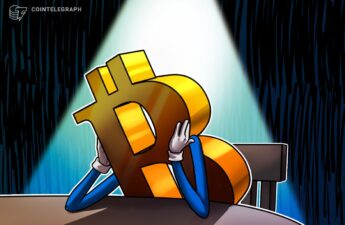When professor Jane Friedman complained about books that she didn’t write being attributed to her on Monday, ecommerce giant Amazon initially said that it would not remove them. But after she took her case to Twitter, earning the backing of the Authors Guild, Amazon relented early this morning.
Friedman—a non-fiction writer, journalist, and educator—said Amazon had refused to remove the books even though they appeared to trade on her name and reputation as an author who has published how-to guides for other writers.
The “garbage books,” which Friedman says were probably churned out using generative AI, had the titles “Your Guide to Writing a Bestseller eBook on Amazon,” “Publishing Power: Navigating Amazon’s Kindle Direct Publishing,” and “Promote to Prosper: Strategies to Skyrocket Your eBook Sales on Amazon.”
When Friedman acknowledged that she could not prove that she owned the trademark on her own name, she said Amazon said it would leave the book up and for sale. But that stance changed late Monday night when the books began disappearing from Amazon’s website, and after the Authors Guild offered to step in on Friedman’s behalf.
@JaneFriedman As a member of the Authors Guild, we can advocate on your behalf and are reaching out to senior management immediately to let them know that these works are an attempt to trade off your brand and must be removed as infringements of the Lanham Act.
— The Authors Guild (@AuthorsGuild) August 7, 2023
“We have clear content guidelines governing which books can be listed for sale and promptly investigate any book when a concern is raised,” Amazon spokesperson Ashley Vanicek told Decrypt by email. “We welcome author feedback and work directly with authors to address any issues they raise and where we have made an error, we correct it.”
Other authors responding to Friedman’s tweet said the same thing had happened to them, and in some cases, the publisher of the fraudulent books did more than just use their names.
“Sorry you’re dealing with this,” author and poet Hattie Jean Hayes wrote. “I have had someone using my name to publish erotica on Amazon [Kindle Direct Publishing] for the last three years. It’s pretty clearly a targeted attack since they’ve used names of my (minor!) family members in the stories,” Hayes said. “Amazon/Kindle gave me the exact same answer.”
The Authors Guild said that its members could request the organization’s assistance in contacting Amazon’s senior management about fraudulent works.
“We’ve worked with Amazon on this issue in the past, and we will continue our conversations with them about advancing their efforts to keep up with the technology,” the Author’s Guild said in a statement shared with Decrypt. “Meanwhile, we encourage everyone to report these books that try to profit from your brand through Amazon’s complaint portal.”
While the tech and entertainment industries continue to grapple with dealing with Generative AI, the Authors Guild says the first step in applying guardrails is requiring author consent and compensation for using their work.
In July, 10,000 members of the Authors Guild co-signed a letter penned by the organization calling on AI industry leaders—including OpenAI, Alphabet, Meta, Stability AI, IBM, and Microsoft—to obtain consent from, credit, and fairly compensate authors.
“It can sometimes be difficult to get problems like this resolved through Amazon’s regular channels if it is not a blatant copyright infringement (where there are takedown procedures under the DMCA), especially if the legal basis is not clearly articulated,” an Authors Guild spokesperson told Decrypt. “Amazon needs to make it easier for authors to get issues resolved.”
On Tuesday, Friedman again took to Twitter to confirm that the fraudulent works were removed from Amazon. She remained concerned, however, that other writers like Hayes—who do not have the large audience that she does—would not be able to raise such a “big red flag.”
As of this morning, the books appear to have been removed from Amazon. How long until it happens again? What about authors who don’t have the ability to raise a big red flag like I do? https://t.co/jcDBFhWPNM
— Jane Friedman (@JaneFriedman) August 8, 2023
Stay on top of crypto news, get daily updates in your inbox.
Source: https://decrypt.co/151780/amazon-authors-writers-fake-books-trademark



